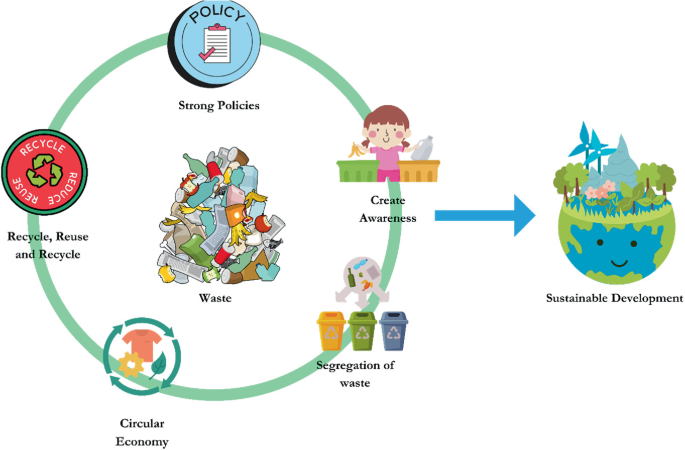Fascination About Reclaim Waste
Table of ContentsThe Basic Principles Of Reclaim Waste A Biased View of Reclaim WasteExcitement About Reclaim Waste7 Easy Facts About Reclaim Waste ExplainedThe 30-Second Trick For Reclaim Waste
Residential sewer waste refers to the waste and products from a property septic storage tank. The proper monitoring and disposal of domestic sewage waste call for liquid waste to be moved to a sewer therapy plant where the appropriate methods and devices are applied to detoxify and dispose of waste.
Commercial waste often consists of possible risks, such as flammable products or a blend of fluid and strong waste products, and calls for a much more innovative and in-depth disposal process. The disposal of industrial waste typically entails the filtration of waste before transportation to guarantee secure and proper disposal. Hazardous waste is produced from results and drainage of industrial procedures and production.
This kind of waste can not utilize the exact same sewer management transport or procedures as septic or business fluids. The hazardous waste monitoring process requires the examination and screening of liquid waste before it undergoes the disposal procedure (liquid waste removal melbourne). Drainage waste is the liquid waste that comes from runoff and excess stormwater in extremely inhabited locations or cities
Runoff waste can cause contamination and flooding if not managed properly. Find out more regarding sewage system cleansing and waste monitoring. Making certain proper waste management can prevent catastrophes and lower ecological damage. Both individuals in household setups and experts in business or production sectors can profit from recognizing the procedures and laws of fluid waste monitoring.
Little Known Questions About Reclaim Waste.
Get in touch with PROS Services today to learn regarding our waste management and disposal services and the correct ways to look after the liquid waste you generate.
Do you recognize what takes place to your water when you end, flush the bathroom or drain pipes the washing maker? No? Well, it deserves recognizing. This so-called 'wastewater' is not only an important source but, after treatment, will be released to our land, rivers or the sea. Utilized water from toilets, showers, bathrooms, cooking area sinks, washings and industrial procedures is referred to as wastewater.

water utilized to cool down equipment or clean plant and tools). Stormwater, a type of wastewater, is drainage that flows from farming and metropolitan locations such as roofings, parks, gardens, roadways, paths and rain gutters into stormwater drains pipes, after rainfall. Stormwater moves without treatment directly to regional creeks or rivers, eventually getting to the ocean.
See This Report about Reclaim Waste
In Queensland, a lot of wastewater is dealt with at sewage treatment plants. Wastewater is transferred from residential or industrial sites with a system of sewage systems and pump stations, called sewerage reticulation, to a sewage treatment plant. City governments construct, preserve and run most sewer therapy plants. Operators are certified under the Environmental Protection Act 1994 to discharge treated wastewater at an acceptable ecological standard right into rivers.
The Department of Natural Resources recommends city governments about handling, operating and maintaining sewage systems and therapy plants. In unsewered areas, regional governments might call for householders to set up private or household sewage therapy systems to deal with residential wastewater from commodes, cooking areas, washrooms and washings. The Division of Natural Resources authorizes using home systems when they are verified to be efficient.
Many stormwater receives no treatment. In some new subdivisions, therapy of some stormwater to remove litter, sand and crushed rock has important source begun using gross contaminant catches. Wastewater treatment takes place in four phases: Eliminates strong matter. Bigger solids, such as plastics and various other items incorrectly released to drains, are eliminated when wastewater is travelled through screens.
Utilizes tiny living organisms recognizes as micro-organisms to damage down and remove staying liquified wastes and fine fragments. Micro-organisms and wastes are incorporated in the sludge.
What Does Reclaim Waste Do?
Nutrient elimination is not available at all sewage treatment plants due to the fact that it needs costly specialist devices. Clear fluid effluent created after treatment may still consist of disease-causing micro-organisms - liquid waste removal melbourne.

This generally suggests wastewater has actually to be treated or contaminants removed prior to it can be released to rivers. A lot of wastewater streams into the sewage system. Under the Act, local federal governments provide approvals and licences for environmentally pertinent tasks (Periods) involving wastewater launches that may have a local effect. The department carries out authorizations and permits to Ages involving wastewater launches that could have a local or statewide influence.
Unknown Facts About Reclaim Waste
Otherwise, samples are considered laboratory evaluation. Typically several tests are required to establish the levels of each of the various pollutants such as oils, hefty metals and chemicals in water. Surveillance supplies factual info concerning water top quality and can validate that permit problems are being met. The information acquired via surveillance provides the basis for making water high quality choices.
Comments on “Reclaim Waste for Beginners”